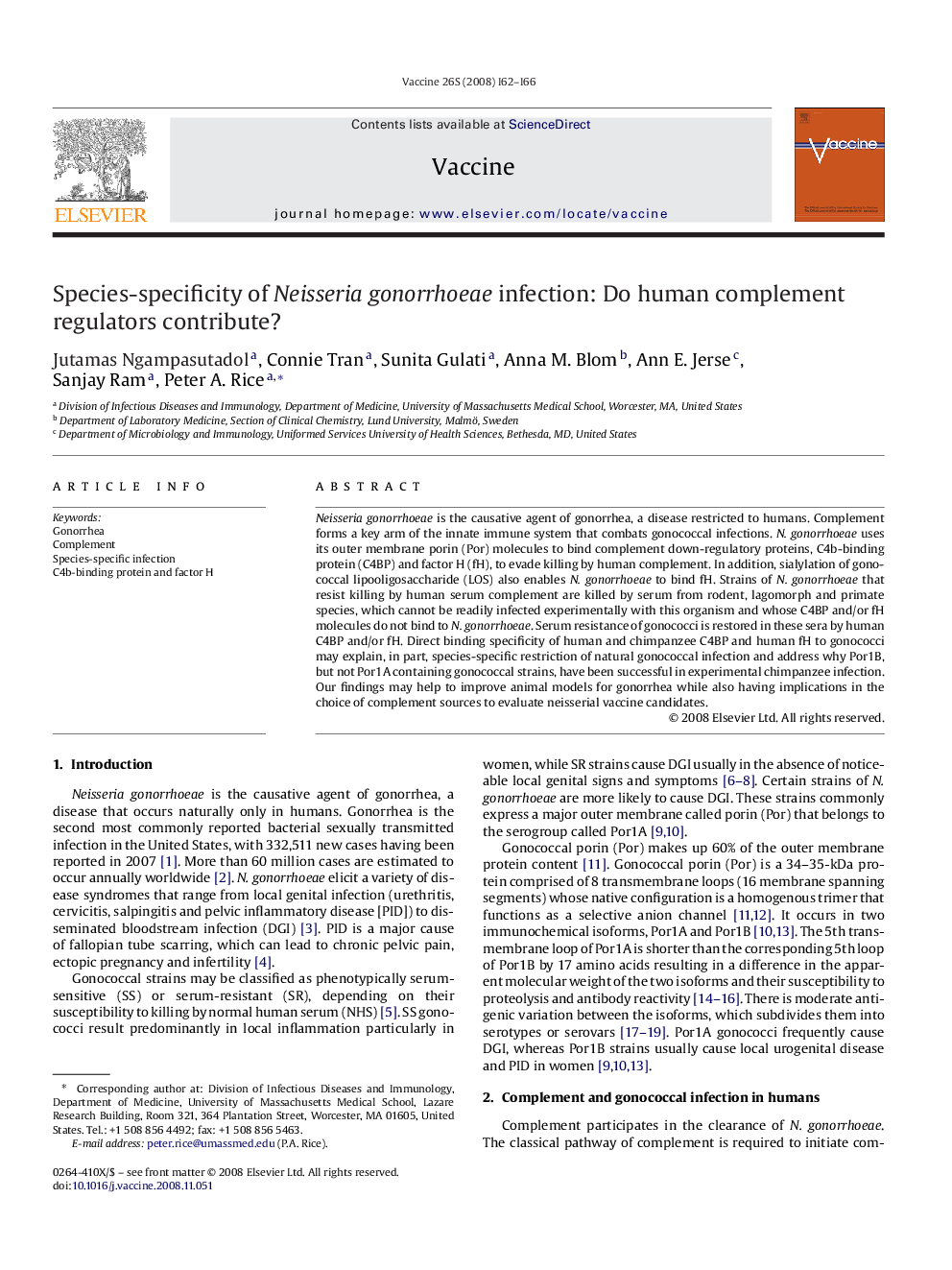| Article ID | Journal | Published Year | Pages | File Type |
|---|---|---|---|---|
| 10970422 | Vaccine | 2008 | 5 Pages |
Abstract
Neisseria gonorrhoeae is the causative agent of gonorrhea, a disease restricted to humans. Complement forms a key arm of the innate immune system that combats gonococcal infections. N. gonorrhoeae uses its outer membrane porin (Por) molecules to bind complement down-regulatory proteins, C4b-binding protein (C4BP) and factor H (fH), to evade killing by human complement. In addition, sialylation of gonococcal lipooligosaccharide (LOS) also enables N. gonorrhoeae to bind fH. Strains of N. gonorrhoeae that resist killing by human serum complement are killed by serum from rodent, lagomorph and primate species, which cannot be readily infected experimentally with this organism and whose C4BP and/or fH molecules do not bind to N. gonorrhoeae. Serum resistance of gonococci is restored in these sera by human C4BP and/or fH. Direct binding specificity of human and chimpanzee C4BP and human fH to gonococci may explain, in part, species-specific restriction of natural gonococcal infection and address why Por1B, but not Por1A containing gonococcal strains, have been successful in experimental chimpanzee infection. Our findings may help to improve animal models for gonorrhea while also having implications in the choice of complement sources to evaluate neisserial vaccine candidates.
Keywords
Related Topics
Life Sciences
Immunology and Microbiology
Immunology
Authors
Jutamas Ngampasutadol, Connie Tran, Sunita Gulati, Anna M. Blom, Ann E. Jerse, Sanjay Ram, Peter A. Rice,
